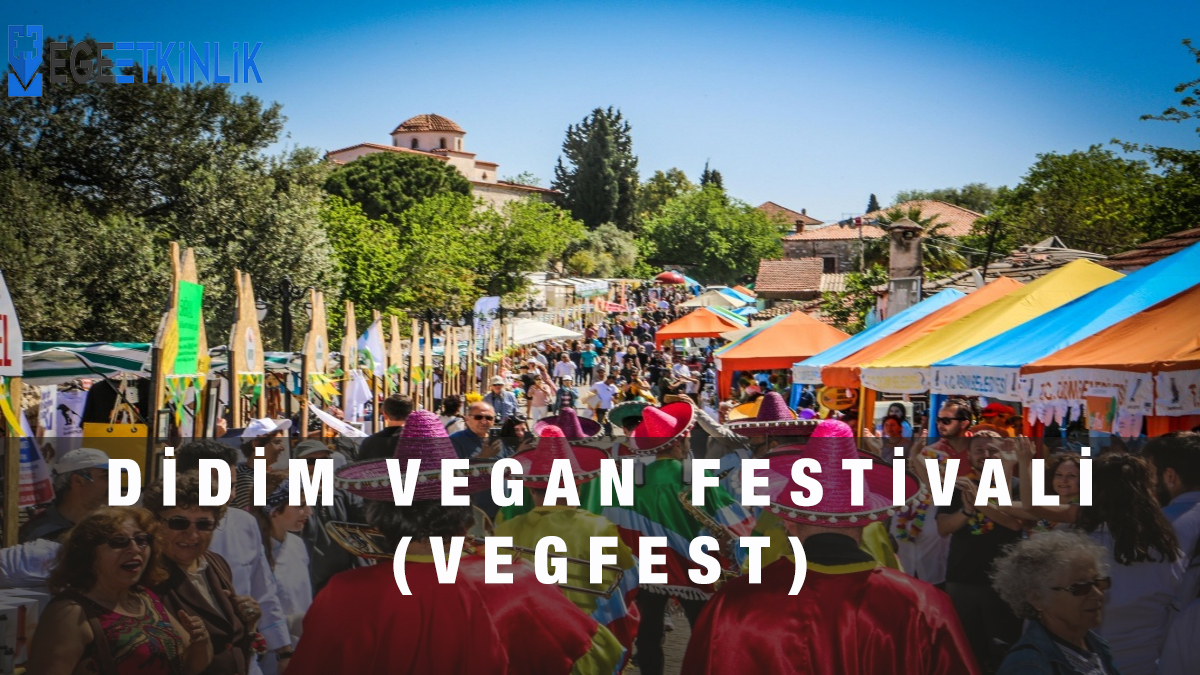I shuddered slightly when I heard what my dining companions ordered for their first meal: One lady opted for a brain and tongue soup, while another ordered the sheep’s head and feet soup. Going through a period of successive travels, I wondered if I was in the correct group, or if I was mistaken to grasp the context of our destination. We were supposed to be heading for Didim Vegfest, the first and only vegan festival of Turkey. Apparently our first stop on the way was Alo 24, a pide restaurant famous for its legendary pide varieties and its offal specialties. Knowing this, plus with the thought in mind that we would be abstaining from all meat and dairy for the rest of our days during the event, my travelling pals made their choice to satisfy their carnivorous appetite. Seeing this, I did not hold back and ordered an immensely satisfying portion of thick yoghurt, holding its shape in dignity, as if a proud cheesecake, so dense that it could be cut into slices with a knife.
I recently wrote an article about the vegan face of Turkish cuisine for The Guide Istanbul Magazine’s March-April issue, trying to explore the vegan options here in Turkey. When I was writing the article, I noticed that the vegan options might offer a wider selection than I could think. Even to my surprise the choices are quite vast. There are so many dishes in Turkish cuisine that are naturally vegan, or could be turned vegan with the elimination of certain ingredients. It may not be so difficult to be vegan in Turkey, may be with the single exception that it is hard for us to give up our yoghurt. We like to use yoghurt in most meze dishes, or add a big dollop of yoghurt as a side to most warm dishes. But apart from that yoghurt fix, most dishes are devoid of dairy. Unlike most European cuisines, we do not use cream or cheese in dishes, and olive oil or other plant-based oils can easily replace butter or clarified butter.
The Turkish cuisine might be perceived as a kebab culture, but in reality kebab belongs to the streets. In home cooking, it is the one-pot dishes called tencere yemeği, literally meaning “pot dish,” that take the lead, which is practically a stew, but unlike its western counterparts, the meat is not the main ingredient. On the contrary, vegetables or pulses dominate. The meat existing in a pot dish can be as little as a fist-sized lump of minced meat or meat cubes, and that minute amount of meat will suffice to feed a family of four or six people. Obviously that can easily be omitted. Actually that is what most people do with the rising price of meat nowadays. One can easily say that the daily fare at homes can totally be meatless, with a little extra care to eliminate eggs, cheese and yoghurt, one can cook vegan Turkish cuisine and survive on this easily.
First of all, there is this amazing category of dishes we call zeytinyağlı, literally meaning “with olive oil.” These olive oil-based vegetable dishes are unintentionally and deliciously vegan. They do not (never and ever) include animal-sourced ingredients, so they always make a safe bet for vegetarians and vegans. The zeytinyağlı dishes usually contain only a few ingredients, usually based on a single vegetable, so one might wonder what the secret that makes them so tasty is. The secret is hidden in the technique and a few clever tips. First, the vegetables are sautéed in olive oil with onions and sometimes a little bit garlic. Usually the onions go in first, sweated in oil to release all the tasty juices, and then the vegetable is added to be fully coated with the oniony oil. Then there is the untold secret of adding a bit of sugar, just enough to bring out the natural sweetness hidden in the vegetable. Usually one teaspoon is enough, or double the amount of salt (my usual ratio), to have a good balance of saltiness to sweetness. Then with just the right amount of water added, the vegetables are braised until the cooking liquid reduces to almost none, and what is left is wonderfully cooked vegetables with a sauce-like olive oil emulsion that contains all the flavor and goodness of the olive oil, veggies and onions. Caution must be taken not to have a watery cooking liquid remaining, to avoid this sometimes a handful or one or two tablespoons of rice are added to soak up the water. Needless to say, a zeytinyağlı dish is way tastier than plain boiled vegetables drizzled with olive oil as a dressing.
The Vegan Festival in Didim, a seaside town on the Aegean coast, now on its third year, deserves an attention to bring out the vegan potential of Turkish cuisine. Mayor Deniz Atabay, now re-elected for another term, is keen on sustaining the festival, not only to emphasize the importance of veganism for the future of the planet, but also to attract worldwide attention toward Didim, with its wonderful seacoast, its unmatched Altınkum beach, which literally translates as “Golden Sand,” and its unique Apollon Temple and two very important ancient sites Miletos and Priene. I must also brag about the fact that I have contributed to Didim as a restoration architect in the past; my project for the conservation of Iİlyas Bey Mosque in Miletos, a genuinely unique piece of early Islamic period in Anatolia, won a prestigious Europa Nostra Award back in 2012.
Being midway between İzmir and Bodrum, located just between the airports of İzmir and Milas, and also quite near Ephesus, Didim somehow strangely and unjustly goes unnoticed. There are many festivals in the Aegean towns, dedicated to wild foraged greens, herbs or single products such as artichokes, but there was none on vegetarian or vegan cuisine. So it was a wise attempt to go for the untraveled path, and start a daring Vegfest, plus it will also raise awareness to environmental issues. The festival may contribute to bring interest toward Didim. Actually, we might just consult the oracle of Apollo of ancient Didymaion that overlooks the vegan stands lined along the road adjacent to the temple of Apollon. The oracle is just there to tell us about the future of Didim or whether going vegan will save the planet!
Source : Hurriyet Daily News





